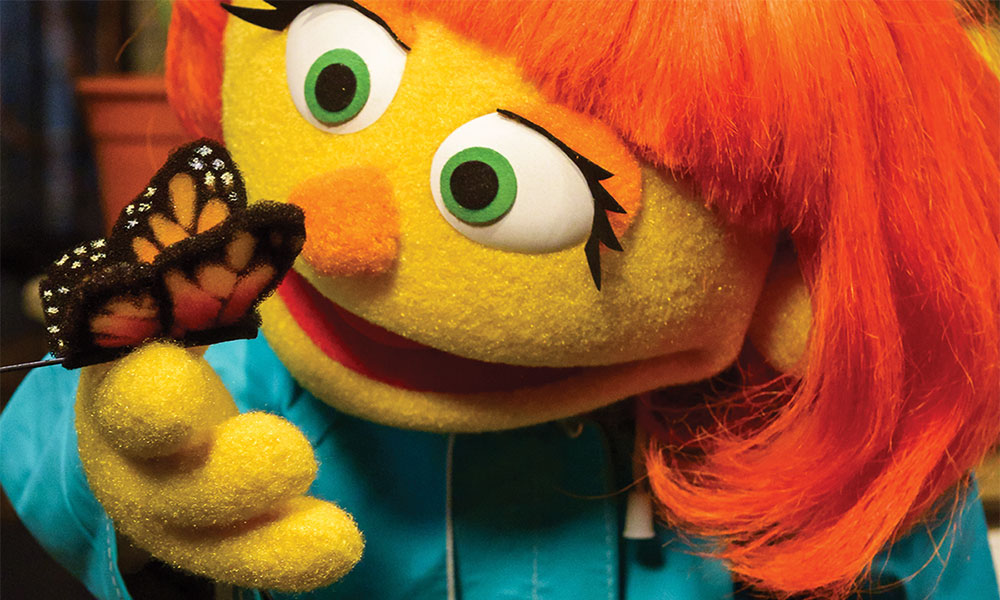
Autism Group Lends its Expertise to Sesame Street
With help from the Autism Society of America, the Sesame Street cast will welcome a new character next month: Julia, a Muppet with autism.
Creating a Sesame Street character is a complex business, which is why Sesame Workshop, the nonprofit behind Sesame Street’s new autism initiative, called on the experts to help them develop a Muppet who has autism.
The Autism Society of America, along with a committee of other experts, lent its knowledge on autism to Sesame Street—and CEO Scott Badesch, who has an adult son on the autism spectrum, couldn’t be more pleased with the final product.
Julia, a four-year-old Muppet with red hair and green eyes, will make her debut on Sesame Street on April 10. According to promotional materials, “Julia is smiley, curious, and loves to play. And she has an autism.”
During the last three years, the Autism Society had numerous conversations with Sesame Workshop and provided feedback on a handful of papers. “It was probably some of the most fascinating discussions I’ve ever had in my 40-some years,” Badesch said. “Because you saw this amazing commitment by [Sesame’s] staff to really want to get it right.”
One of the Autism Society’s affiliates in Long Island even recommended the puppeteer, Stacy Gordon, who ended up getting the role of Julia on the show. She has a son on the autism spectrum.
“Man, I really wish that kids in my son’s class had grown up with a Sesame Street that had modeling [of] the behavior of inclusion of characters with autism,” Gordon told NPR.
And that’s an important distinction. Rather than spotlighting the ways Julia is different from the other Muppets, Sesame Street is aiming to showcase how the other Muppets are interacting with her in warm, accepting ways. They’re sending the message that if kids have friends and classmates that have autism, it’s OK, Badesch said. So when “a six-year-old who goes to school who sees a friend that has autism, he’ll say ‘Oh, I know this. I’ve got to be accepting of this.’”
These days, Badesch said that many people with autism or other disabilities aren’t fully accepted or respected—and they have a tough road ahead of them. For instance, he said a majority of autistic adults want to work and have the abilities to do so, but they just can’t get hired.
But, with Julia, Badesch said Sesame Street is doing much more for autism awareness and understanding than any large marketing campaigns or news stories could. “It’s giving younger generations an appreciation of this thing called autism,” he said. “When they get older and go into the workforce, they’ll understand autism much better than people my age do.”
The Autism Society also hopes Julia’s debut will help viewers to better appreciate the differences that exist among people. “What we hope for [with the show] is that people respect and value differences—any differences—and that a disability is just a characteristic of a person, no different than the color of my hair, or the fact that I may be tall and someone may be short, and that each of us is different,” Badesch said. “I think that those who will be watching the shows will see just how well they’re able to deal with a very complex, spectrum disorder in one little puppet. They did it perfectly, and it’s wonderful.”
Julia, the new Sesame Street character. (Sesame Workshop)






Comments